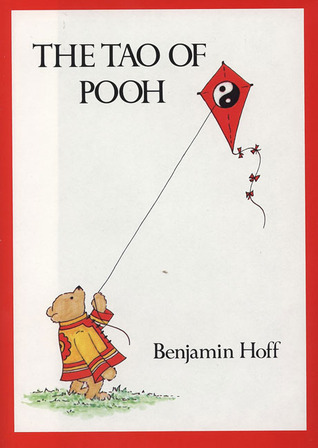Chapter 6: The Pooh Way
byChapter 6: The Pooh Way, In Taoist philosophy, Wu Wei is often described through the metaphor of a stream that, as it grows and transforms into a river, learns to flow more smoothly and without effort. This principle mirrors what Hoff calls “the Pooh Way,” where things are done effortlessly, without force or struggle. Wu Wei emphasizes acting in a natural, calm manner, avoiding egotistical or combative effort. For example, water naturally flows around obstacles without trying to force its way through, embodying the Taoist idea of allowing things to unfold as they are meant to. In contrast, the constant effort to control or manipulate situations often leads to unnecessary tension and failure.
Chuang-tse illustrates Wu Wei with a story about Confucius observing a man saving himself from a turbulent pool under a waterfall. The man explains that he has spent his life learning to follow the water’s flow instead of resisting it. This reflects the Taoist view that when people align their actions with their own inner nature and the natural world, they do not need to put in strenuous effort to succeed. Pooh, too, embodies this effortless approach to life, explaining to Hoff that things “just sort of happen” for him. Hoff relates this to the teachings of Lao-tse, who believed that Tao allows life to unfold naturally without interference. A scene from The House at Pooh Corner illustrates this point, where Pooh and Rabbit attempt to help Eeyore, but it is Pooh’s unhurried actions, aligned with Wu Wei, that ultimately lead to Eeyore’s rescue, even though Rabbit initially claims credit.
Hoff compares Wu Wei to the idea of simply “putting the round peg in the round hole,” contrasting it with the way ego, cleverness, and knowledge try to force things into places where they don’t belong. This is seen in the example of Piglet struggling to open a pickle jar, while Pooh effortlessly opens it by twisting it naturally. When Tigger tries too hard, he ends up breaking the jar, demonstrating that tension and overthinking do not lead to success. Hoff and Pooh reflect on how human beings often complicate things with their intellect, making them more difficult than they need to be. In Taoism, true wisdom comes from letting go of the need to control, and instead allowing things to happen naturally.
The search for the Very Small Beetle in the Winnie-the-Pooh books further exemplifies Wu Wei. While Rabbit organizes the search, Pooh, with his usual simplicity, steps on Piglet, wonders what’s going on, and unintentionally discovers the beetle. This perfectly demonstrates how things often fall into place when they are allowed to, without excessive effort or intervention. Similarly, Pooh and Piglet’s birthday celebration for Eeyore highlights how things can work out in unexpected ways. Pooh brings a jar of honey as a gift, but ends up eating it on the way. He repackages the jar with “A Happy Birthday” written on it, and gives it to Eeyore. Piglet, too, has an accident with his balloon, but the crumpled balloon fits perfectly into the “Useful Pot” Pooh had brought. These events illustrate the Taoist belief that life has a way of unfolding in the right direction, even when things don’t go as planned.
Wu Wei, like a reflex, is hard to define but is experienced in the way water flows, a mirror reflects, or an echo responds. Pooh’s life is a perfect example of this principle in action. When Hoff explains Wu Wei to Pooh, he points out that it’s about following intuition and adapting naturally to circumstances, allowing decisions to emerge without effort. Pooh demonstrates this when he doesn’t consciously decide whom to visit, but simply finds himself heading to Piglet’s house. This effortless decision reflects the Taoist principle of living in harmony with one’s natural inclinations. By following his instincts, Pooh leads a stress-free life, illustrating the power of Wu Wei.
When Pooh asks Hoff about the riddle of Wu Wei, Hoff explains that it’s not unlike the martial art T’ai Chi Ch’üan, where opponents redirect force rather than resisting it. This highlights the essence of Wu Wei: it’s about moving with the flow of life rather than against it. Hoff further explains that Wu Wei is like a floating cork, bouncing back without using any energy. Pooh’s playful nature leads him to guess that the answer to the riddle might be a piece of cork, aligning with his simple and natural understanding of the world.
Finally, Hoff reveals that the answer to Chuang-tse’s riddle is “the Pooh Way,” which Pooh initially dismisses as a bad riddle. Pooh, always ready with his own jokes, asks Hoff a riddle about a sunburned penguin, showing that his wisdom comes not from intellectual complexity but from simplicity and humor. Hoff, in turn, asks Pooh another riddle about something that runs around all day without getting anywhere, but he keeps the answer for the next chapter. This playful exchange captures the essence of Wu Wei—living simply, naturally, and without force, and learning to navigate life’s challenges with ease and a sense of humor.

